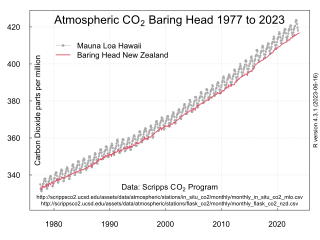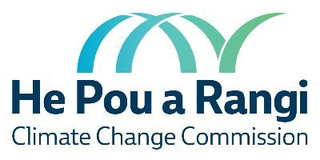Related Research Articles

The Resource Management Act (RMA) passed in 1991 in New Zealand is a significant, and at times, controversial Act of Parliament. The RMA promotes the sustainable management of natural and physical resources such as land, air and water. New Zealand's Ministry for the Environment describes the RMA as New Zealand's principal legislation for environmental management.
Russell McVeagh is a New Zealand law firm with offices in Auckland and Wellington. It is one of New Zealand's largest law firms and is ranked highly by law firm ranking guides such as The Legal 500 and Chambers and Partners.

Tort reform consists of changes in the civil justice system in common law countries that aim to reduce the ability of plaintiffs to bring tort litigation or to reduce damages they can receive. Such changes are generally justified under the grounds that litigation is an inefficient means to compensate plaintiffs; that tort law permits frivolous or otherwise undesirable litigation to crowd the court system; or that the fear of litigation can serve to curtail innovation, raise the cost of consumer goods or insurance premiums for suppliers of services, and increase legal costs for businesses. Tort reform has primarily been prominent in common law jurisdictions, where criticism of judge-made rules regarding tort actions manifests in calls for statutory reform by the legislature.

Carbon pricing is a method for nations to address climate change. The cost is applied to greenhouse gas emissions in order to encourage polluters to reduce the combustion of coal, oil and gas – the main driver of climate change. The method is widely agreed and considered to be efficient. Carbon pricing seeks to address the economic problem that emissions of CO2 and other greenhouse gases (GHG) are a negative externality – a detrimental product that is not charged for by any market.

Emission trading (ETS) for carbon dioxide (CO2) and other greenhouse gases (GHG) is a form of carbon pricing; also known as cap and trade (CAT) or carbon pricing. It is an approach to limit climate change by creating a market with limited allowances for emissions. This can lower competitiveness of fossil fuels and accelerate investments into low carbon sources of energy such as wind power and photovoltaics. Fossil fuels are the main driver for climate change. They account for 89% of all CO2 emissions and 68% of all GHG emissions.

Climate change in New Zealand involves historical, current and future changes in the climate of New Zealand; and New Zealand's contribution and response to global climate change. Summers are becoming longer and hotter, and some glaciers have melted completely and others have shrunk. In 2021, the Ministry for the Environment estimated that New Zealand's gross emissions were 0.17% of the world's total gross greenhouse gas emissions. However, on a per capita basis, New Zealand is a significant emitter, the sixth highest within the Annex I countries, whereas on absolute gross emissions New Zealand is ranked as the 24th highest emitter.
Michael James Salinger is a New Zealand climate change researcher and teacher who has worked for a range of universities in his home country and around the world. He was a senior climate scientist for a Crown Research Institute, the National Institute of Water and Atmospheric Research (NIWA), and President of the Commission for Agricultural Meteorology of the World Meteorological Organization (WMO). He has received several awards and other honours for his work with climate change and is involved in researching and monitoring past and current climate trends. Within his area of specialist scientific knowledge, Salinger has co-authored and edited a range of reports, articles and books. He was involved in an employment dispute and elements of his theory and practice were at the centre of a case against NIWA.
ClientEarth is an environmental law charity, with offices in London, Brussels, Warsaw, Berlin, Beijing, Madrid and Los Angeles. It was founded in 2008 by James Thornton and the organisation's CEO is Laura Clarke. As lawyers and environmental experts, they use the law to hold governments and other companies to account over climate change, nature loss and pollution

Roderick Marshall Carr is a New Zealand businessman and administrator. He retired from his position as Vice-Chancellor of the University of Canterbury in 2019 and has been a chairman of the board of the Reserve Bank of New Zealand, and a director of Lyttelton Port Company, Taranaki Investment Management and Canterbury Employers’ Chamber of Commerce. In 2019, Carr was appointed as Chair-designate for the Climate Change Commission and has been confirmed in that role for five years following the passing of the Climate Change Response Amendment Act. Carr has been partially sighted and legally blind since birth.

Climate change in Germany is leading to long-term impacts on agriculture in Germany, more intense heatwaves and coldwaves, flash and coastal flooding, and reduced water availability. Debates over how to address these long-term challenges caused by climate change have also sparked changes in the energy sector and in mitigation strategies. Germany's energiewende has been a significant political issue in German politics that has made coalition talks difficult for Angela Merkel's CDU.

Climate change litigation, also known as climate litigation, is an emerging body of environmental law using legal practice to set case law precedent to further climate change mitigation efforts from public institutions, such as governments and companies. In the face of slow politics of climate change delaying climate change mitigation, activists and lawyers have increased efforts to use national and international judiciary systems to advance the effort. Climate litigation typically engages in one of five types of legal claims: Constitutional law, administrative law, private law (challenging corporations or other organizations for negligence, nuisance, etc., fraud or consumer protection, or human rights.

State of the Netherlands v. Urgenda Foundation was a court case heard by the Supreme Court of the Netherlands in 2019 related to government efforts to curtail carbon dioxide emissions. The case was brought against the Dutch government in 2013, arguing the government, by not meeting a minimum carbon dioxide emission-reduction goal established by scientists to avert harmful climate change, was endangering the human rights of Dutch citizens as set by national and European Union laws.

The environmental policy of the Joe Biden administration includes a series of laws, regulations, and programs introduced by United States President Joe Biden since he took office in January 2021. Many of the actions taken by the Biden administration reversed the policies of his predecessor, Donald Trump.

The Climate Change Commission is an independent Crown entity that advises the New Zealand Government on climate change policy and monitors the government's progress towards New Zealand's emission reduction goals within the framework of the Climate Change Response Amendment Act. The Commission was established as the successor to the Interim Climate Change Committee following the passage of the Zero Carbon Act in November 2019.

Executive Order 13990, officially titled Protecting Public Health and the Environment and Restoring Science to Tackle the Climate Crisis is an executive order signed by President Joe Biden on January 20, 2021, which implements various environmental policies of his administration including revoking the permit for the Keystone XL Pipeline and temporarily prohibiting drilling in the arctic refuge.
Tessa Khan is an environmental lawyer who lives in the United Kingdom. She co-founded and is co-director of the Climate Litigation Network, which supports legal cases related to climate change mitigation and climate justice.

Milieudefensie v Royal Dutch Shell (2021) is a human rights law and tort law case heard by the district court of The Hague in the Netherlands in 2021 related to efforts by several NGO's to curtail carbon dioxide emissions by multinational corporations. It was brought by the Dutch branch of Friends of the Earth and a group of other NGO's against the oil corporation, Shell plc. In May 2021, the court ordered Shell to reduce its global carbon emissions from its 2019 levels by 45% by 2030, relating not only to the emissions from its operations, but also those from the products it sells. It is considered to be the first major climate change litigation ruling against a corporation.
West Virginia v. Environmental Protection Agency, 597 U.S. ___ (2022), was a landmark decision of the U.S. Supreme Court relating to the Clean Air Act, and the extent to which the Environmental Protection Agency (EPA) can regulate carbon dioxide emissions related to climate change.

Susan Jane Grey is a political figure and environmental lawyer in Nelson, New Zealand. She is the co-leader of the NZ Outdoors & Freedom Party and of Freedoms NZ. She is known for promoting medicinal cannabis rights and opposing COVID-19 vaccination, 5G technology, and the use of 1080, frequently sharing misinformation on social media about the effectiveness of COVID vaccination.
Anjali Sharma is an Australian climate activist, who at the age of 16, was the lead litigant in a class action in the Australian Federal Court, against the Federal government, and in particular, the then Minister for the Environment, Sussan Ley, for failing to consider the impacts of climate change. Sharma was also a finalist in the 2021 Children's Climate Prize, an International prize for climate activism, based in Sweden.
References
- 1 2 3 "About Us". Lawyers for Climate Action NZ Inc. Retrieved 23 May 2023.
- 1 2 "News & Events". Lawyers for Climate Action NZ Inc. 8 August 2019. Retrieved 23 May 2023.
- ↑ Corlett, Eva (2 July 2021). "New Zealand lawyers sue climate change body over alleged failure to meet targets". The Guardian. ISSN 0261-3077 . Retrieved 23 May 2023.
- 1 2 3 Green, Kate (23 November 2022). "High Court rules against climate change action case over commission's advice to government". RNZ. Retrieved 23 May 2023.
- 1 2 Dobson, Jamie (2021). "The right to a sustainable environment" (PDF). LawTalk (945): 6–8 – via New Zealand Law Society.
- 1 2 3 Cooper, Nathan (13 December 2021). "Courts around the world have made strong climate rulings – not so in New Zealand". The Conversation. Retrieved 23 May 2023.
- 1 2 "Australian and Pacific Climate Change Litigation". law.app.unimelb.edu.au. 2021. Retrieved 23 May 2023.
- ↑ Ewing, Isobel (23 November 2022). "High Court judge agrees with group that New Zealand's climate change law lags behind global targets". Newshub. Retrieved 23 May 2023.
- ↑ "Judicial review of Climate Change Commission and Minister of Climate Change". Ministry for the Environment. 23 November 2022. Retrieved 23 May 2023.
- 1 2 Stevens, Ric (23 May 2023). "Lawyers seeking steeper emissions cuts lose court bid". NZ Herald. Retrieved 23 May 2023.
- 1 2 Wannan, Olivia (22 March 2023). "Climate Change Commission fails to get costs back from activist group". Stuff. Retrieved 23 May 2023.
- ↑ Or, Mary (13 May 2023). "Lawyers for Climate Action NZ questions climate change regulations before High Court". www.thelawyermag.com. Retrieved 23 May 2023.
- 1 2 Daalder, Marc (21 February 2023). "Climate commission seeks $130k from activists". Newsroom. Retrieved 23 May 2023.